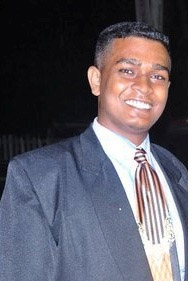Despite a low profile since the start of the year, members of “Operation Rescue UG” are continuing to press for better conditions at the University of Guyana (UG), especially wage increases that they say is needed to ensure delivery of a quality education.
Pat Francis, President of the University of Guyana Senior Staff Association (UGSSA) and other members of the initiative were preparing to meet with newly-installed UG Vice Chancellor Professor Jacob Opadeyi when Stabroek News spoke with her last Thursday.
Francis also mentioned that since the beginning of the year, the group has had two meetings with a negotiating team concerning wages and salaries, one of the many issues the UGSSA says needs improving. She noted, however, that the association is not entirely satisfied with the progress of talks so far, while adding that a few meetings that were to be convened have been cancelled.

Francis nevertheless expressed the group’s optimism for success in this year, especially in light of the fact that’s several members of the negotiating team, particularly the Vice Chancellor, seems in favor of the increase of wages and salaries for UG staff. This includes non academic and academic staff, represented by the University of Guyana Workers Union (UGWU) and the UGSSA, respectively.
The members of Operation Rescue UG hold that one of the greatest threats to students is the loss of quality lecturers, which is due to the unsavoury wages package offered.
Francis and others maintained that in order for the students of the university to receive a quality education, there must be teachers with quality knowledge in the various subject areas. She said that everything that is done in the current struggle is being done for the benefits of the students.
Dr. Mellissa Ifill, UGSSA Vice-President, explained that UG is currently faced with a dire human resource deficiency. She said that only about 4% of the lecturers employed have PhDs, while 35% have only first degrees. If a higher level of education is to be provided to students, she said, this situation would need to change.
Ifill said that though they are not advocating for the termination of first degree lecturers, the group is calling for a programme to be initiated to enable staff to upgrade their qualifications. She said that a policy framework is currently being looked at which proposes scholarships be made available for lecturers to upgrade their qualifications.
Once done, Francis stated that lecturers with Masters Degrees would be able to pursue their PhDs, while lecturers with first degrees will be able to purse their Masters or maybe even a second degree.

Francis stressed that the level of salary offered by UG impacts its ability to retain highly-qualified lectures and noted that even after training lecturers, UG will still risk losing them if their salaries are insufficient. “To attract and retain highly-qualified lecturers and researchers, there must be a competitive salary or else they will leave,” Ifill said. She also mentioned that the university currently has a very high turnover rate, which is due, among other things, to the salary it offers.
Meanwhile, the University of Guyana Students Society (UGSS) says that its participation in the ‘Operation Rescue UG’ may not be as pronounced as it was last year.
UGSS President Ganesh Mahipaul told Stabroek News that he has informed the group that while the UGSS will continue to support their efforts, his input may not be as visible as that of the former President.
He nevertheless stated his agreement that the university is strapped for cash, while adding that this will not change unless there is an increase in subventions given to the institution. He further stated that in light of this, the university needs to explore alternative ways of attaining revenue.
Mahipaul added that he would be willing to explore and support a wide variety of avenues to achieve this goal. He, however, declared that under no circumstance will the UGSS entertain an increase in the tuition paid by students. This, he said, is one of the demands being made by the UGWU as well as the UGSSA, but since the UGSS functions to protect students, this move cannot be supported.
However, Dr. Ifill explained that what is being called for really is not an increase, but a regulatory adjustment to a decision that was made decades ago. Ifill said that in 1994 it was decided that tuition fees would stand at US$1000, but that the Guyana currency has since depreciated. She said that the system has never been adjusted to accommodate this depreciation and that it needs to be corrected.
Bruce Haynes, head of UGWU, mentioned that the US$10Million the university is to receive from the World Bank for the development of various areas, comes greater urgency for the policies suggested to be implemented.
He said that the new facilities and equipment that will be built and purchased by UG will require persons trained to use them. If persons are not adequately trained, it may result in the damaging and/or destruction of the equipment. As a result, it is imperative, he said, for the technical staff to be trained to properly use the improved facilities and equipment.
Francis said that the partnership of unions remains committed to efforts communicated last year and will be advocating those as well as new ones so as to ensure that the staff and students of UG both see improvement.





